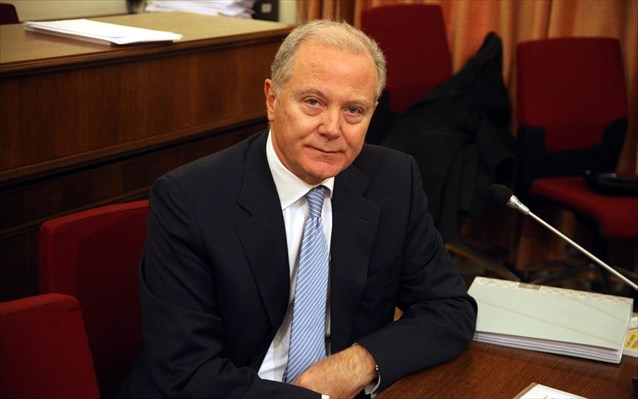Pictures: www.naftemporiki.gr
Troika representatives expressed satisfaction with the development of the banking sector during their meeting with governor of the Bank of Greece George Provopoulos.
At the meeting, they discussed the control of BlackRock and stress tests, the privatization of Eurobank and the policy of the management of non-performing loans of banking groups. Creditors specifically noted that the return of capital in the public sector has been renewed. The coordination in terms of stress tests and European circumstances are a matter of utmost importance for the banking sector, especially with regard to the core tier one ratio of 8%.
Greek banks remain at a ratio of 9%. It is reasonable, however, to seek the same treatment as European banks, since the control over Greek banks is much stricter.
The governor of the Bank of Greece informed representatives of the Troika about the development of the evaluation of BlackRock, which will have submitted data about the Greek portfolio by 30 November and later – about the international portfolio of groups.

George Provopoulos
Based on the evaluation data and adding capital gains that can be obtained as a result of the restructuring, the Bank will determine the expected capital needs of the sector and will announce them early next year.
Expectations of results which will be better than those in the previous inspection will be created in the case that the harmonization of 8% is adopted in combination with factors such as improved macroeconomic scenarios applied by BlackRock and the "separation" of about 9 billion euro of total credits that belonged to rescued banks.
By 30 November, the Bank of Greece will have received information from banks about the frameworks of the management of non-performing loans. According to information, bank groups are proceeding towards the formation of "super departments" which will deal with this, admitting that capital is needed for the creation of a single bad bank, for example, but the results won’t be better.
The Troika was informed about the recapitalization of cooperative banks, which have received an extension until the end of the month.
Capital increase of 6 cooperative banks is in progress. These banks are required to meet the minimum requirements of supervisors, and at the second stage other banks will be invited to increase their capital in order to strengthen indicators and the development of their activities.
Εurobank
It is expected that by the end of the visit of the Troika still open issues in the sector will be clarified, such as Eurobank, which is the subject of discussion between the main shareholder, the Financial Stability Fund, and creditors.
The Troika is expecting suggestions from the Fund and the Working Group established by the Ministry of Finance in order for the privatization of the bank to advance.
The problem is the price at which the package of shares can be sold in the first quarter of 2014; the type and investor that will be acceptable as a strategic investor should also be determined.
In order for the privatization to be successful, the assessment of the bank should be determined accordining to market criteria, i.e. it should be lower than the capital, which the Fund has deposited in it. Furthermore, the fact that at the moment only those with investment capitals and not credit institutions are generally interested, should also be taken into account.
This is a delicate balance which must be maintained, and that is why certain circles do not exclude the possibility that, at this stage, the banks’ capital needs, which amount to 1.5-2 billion euro, will be covered by the Financial Stability Fund, and, in the next stage, after the restructuring, private capitals with better conditions will be sought. Representatives of banks put forward for discussion the question of the likely change in the terms of the recapitalization, with an emphasis on warrants, so that the re- privatization could be accelerated. This issue is crucial for the development of the events around Eurobank.